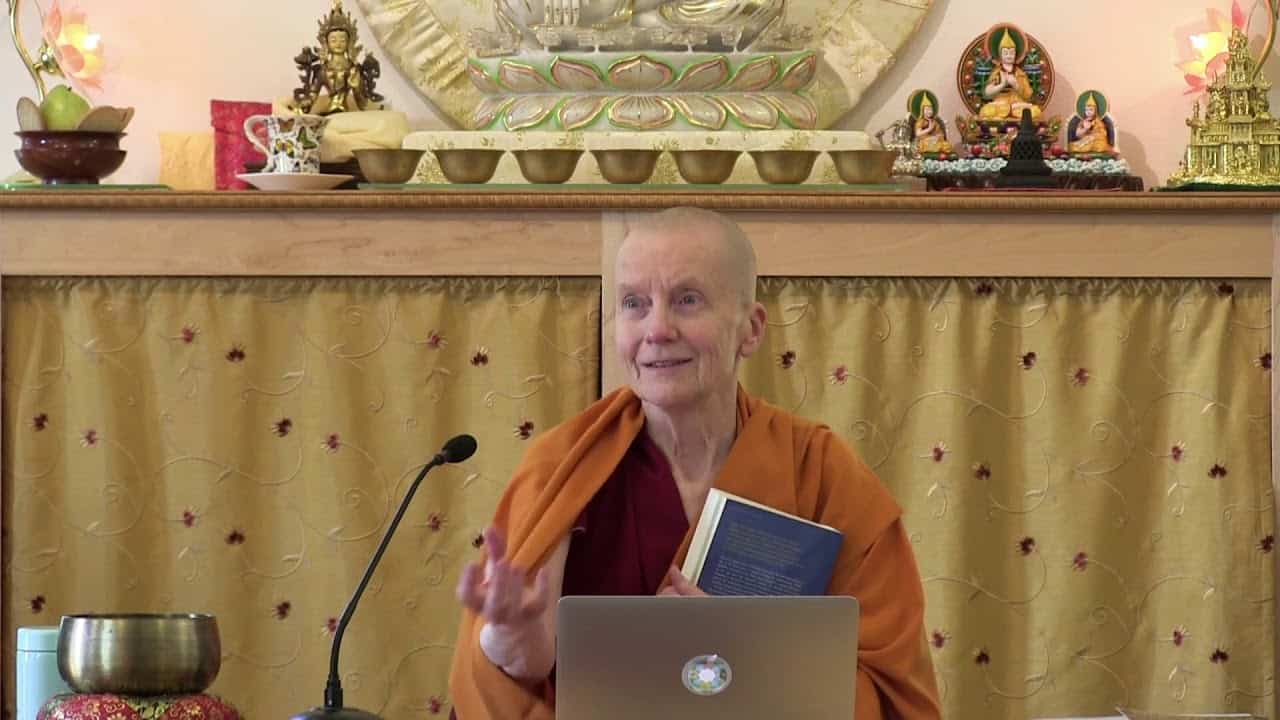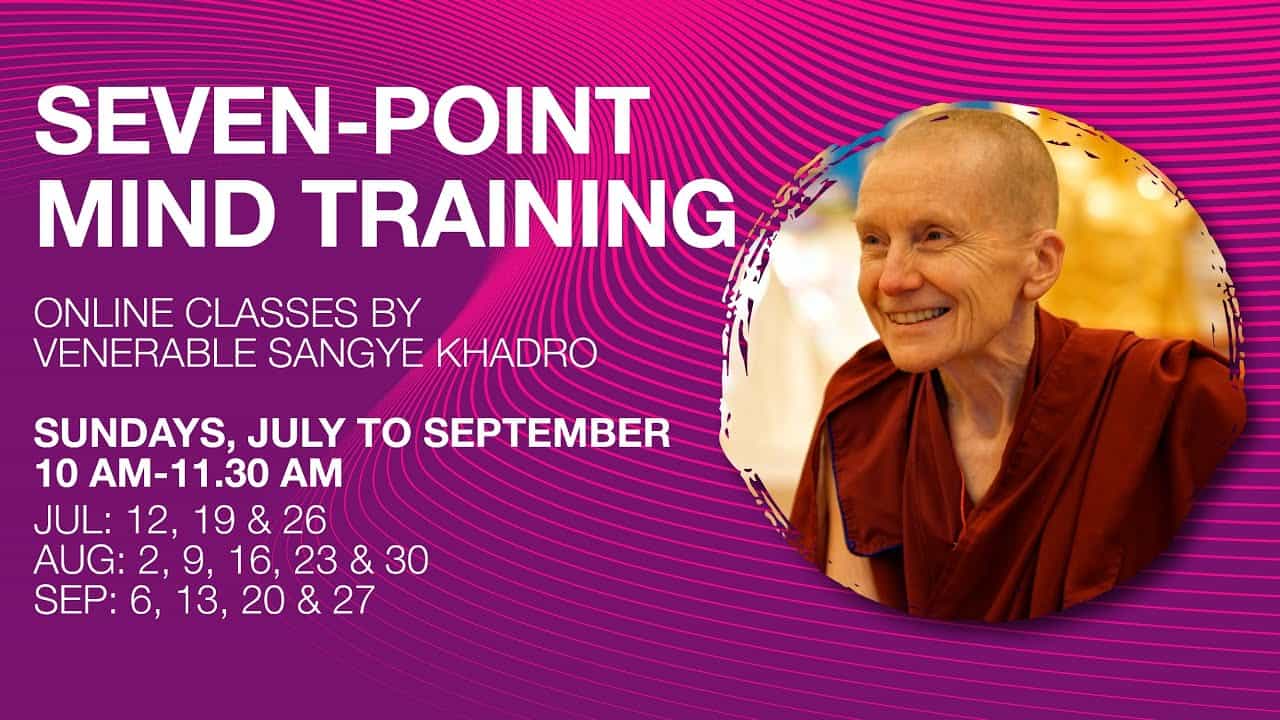Karma and its effects
51 The Foundation of Buddhist Practice
Part of an ongoing series of teachings (retreat and Friday) based on the book The Foundation of Buddhist Practice, second volume in “The Library of Wisdom and Compassion” series by His Holiness the Dalai Lama and Venerable Thubten Chodron.
- Being aware of karma and making good decisions
- Three characteristics of causality
- Effects arise from causes, cannot arise without causes
- Causes are impermanent, effects are concordant with the causes
- Effect comes from a primary cause and many cooperative conditions
- Karma is volitional action
- Some misconceptions about karma
- Mind is the forerunner for miserable states, happy states
The Foundation of Buddhist Practice 51: Karma and Its Effects (download)
Contemplation points
- Describe what karma is.
- How does the meditation/reflection upon karma affect your daily life?
- What mental afflictions/mental factors do you have the most problem with (cause you to create negative karma repeatedly)?
- How does the understanding of karma give you the power to create your experiences?
Venerable Thubten Chodron
Venerable Chodron emphasizes the practical application of Buddha’s teachings in our daily lives and is especially skilled at explaining them in ways easily understood and practiced by Westerners. She is well known for her warm, humorous, and lucid teachings. She was ordained as a Buddhist nun in 1977 by Kyabje Ling Rinpoche in Dharamsala, India, and in 1986 she received bhikshuni (full) ordination in Taiwan. Read her full bio.


